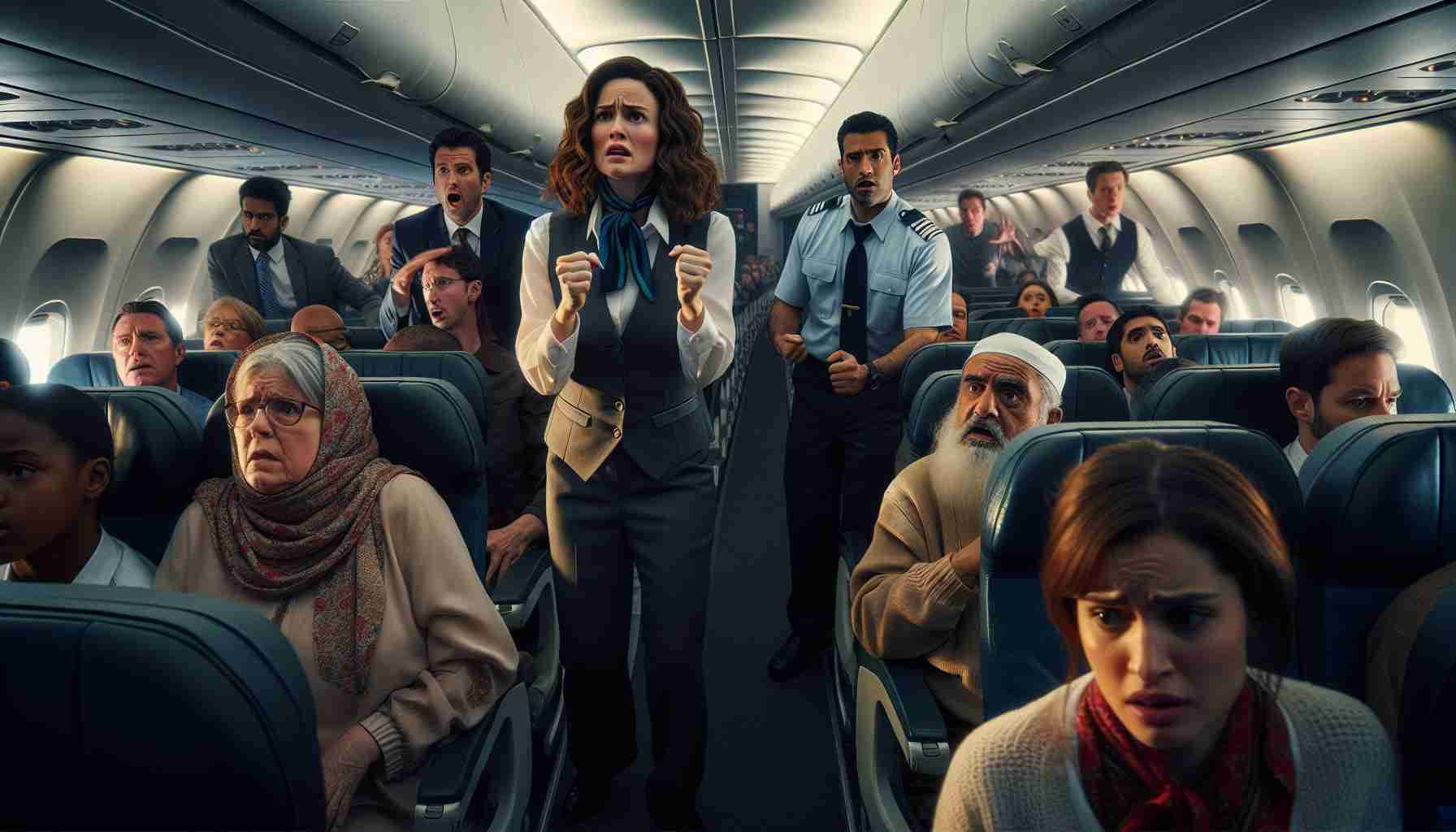An unexpected situation unfolded on a recent flight from Milwaukee, diverging from the expected calmness of air travel.
A passenger disrupted the peace by attempting to open the airplane door mid-flight, causing chaos and concern among fellow travelers. Instead of resorting to duct tape like in the original incident, quick-thinking passengers acted swiftly to prevent the individual from reaching the door, ensuring the safety of everyone on board.
The disruptive passenger’s behavior, though concerning, sheds light on the complexities of mental health crises and the potential risks associated with such episodes during air travel. Despite the challenging circumstances, the unity and quick response of passengers in handling the situation demonstrate the importance of remaining vigilant and prepared for unexpected events in the air.
While the specifics of each incident may vary, one thing remains constant: the necessity for passengers to remain vigilant and supportive of one another, especially in moments where safety and security are compromised. In this case, the swift action of passengers prevented a potential disaster, highlighting the importance of unity and collective response in the face of adversity during air travel.
New Incidents Bring Further Insight into Unruly Passenger Behavior
In recent reports following the incident of an unruly passenger attempting to open an airplane door mid-flight, new details have emerged shedding light on the broader challenges associated with such occurrences.
Key Questions:
1. What are the legal consequences for unruly passengers who disrupt flights?
2. How do airlines and aviation authorities handle situations involving mentally unstable passengers?
3. Are there specific training protocols for flight attendants and crew to deal with unruly passengers effectively?
Answers and Insights:
1. Legal consequences for unruly passengers include fines, potential prison time, and even lifetime bans from certain airlines. Aviation authorities take such incidents very seriously, as they pose a significant risk to the safety of all passengers and crew on board.
2. Airlines are equipped to handle mentally unstable passengers with empathy and professionalism. They may involve mental health professionals on the ground to assess the situation and provide appropriate care for the individual involved.
3. Flight attendants and crew undergo rigorous training to handle a variety of in-flight emergencies, including dealing with unruly passengers. This training includes de-escalation techniques, conflict resolution, and coordination with authorities on the ground.
Challenges and Controversies:
1. Balancing the safety and well-being of passengers with the rights and needs of individuals experiencing mental health crises can be a delicate challenge for airlines and authorities.
2. The line between necessary security measures and potential infringement on individual liberties is a point of contention in handling unruly passenger incidents.
Advantages and Disadvantages:
1. Advantages: Quick responses from passengers and crews can prevent potential disasters, showcasing the importance of unity and collective action in ensuring everyone’s safety.
2. Disadvantages: The emotional toll on passengers and crew involved in such incidents can be significant, and the aftermath may require additional support and resources for those affected.
For more information on airline safety protocols and passenger rights, visit Aviation Authority.
 How Apple’s Dance with China’s Market Shifts the Global Tech Landscape
How Apple’s Dance with China’s Market Shifts the Global Tech Landscape  The Spark Behind Schenectady’s Electrifying Weekend: A Deep Dive into the Future of Cars
The Spark Behind Schenectady’s Electrifying Weekend: A Deep Dive into the Future of Cars  The Unseen Journey: How Aurora’s Self-Driving Trucks Are Paving New Roads in Freight
The Unseen Journey: How Aurora’s Self-Driving Trucks Are Paving New Roads in Freight  Epic Games’ Bold Move: Revolutionizing Developer Revenue with New Policies
Epic Games’ Bold Move: Revolutionizing Developer Revenue with New Policies  Lucid Group’s Wild Ride: Can Luxury EVs Thrive Amid Economic Uncertainty?
Lucid Group’s Wild Ride: Can Luxury EVs Thrive Amid Economic Uncertainty?  BYD’s Record-Breaking Feat: Revolutionizing India’s EV Landscape with Sealion 7
BYD’s Record-Breaking Feat: Revolutionizing India’s EV Landscape with Sealion 7  The Surprise Tesla Tax: Washington State’s Bold New Move Shakes EV Landscape
The Surprise Tesla Tax: Washington State’s Bold New Move Shakes EV Landscape  World’s Largest Car Carrier Sets Sail: A Game-Changer for Electric Vehicles
World’s Largest Car Carrier Sets Sail: A Game-Changer for Electric Vehicles  Why New Yorkers Are Hesitant to Pay for Clean Energy Despite Broad Support
Why New Yorkers Are Hesitant to Pay for Clean Energy Despite Broad Support 